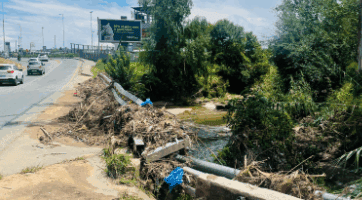Government disregards poor – Outa
JOBURG – As burden increase on the poor with the recent fuel price increases, the Opposition to Urban Tolling Alliance (Outa) has said the government has no regard for the poor, as they have increased the fuel levy in real terms, by 109 percent over the last eight years.

The civil action group of business associations and individuals, noted with interest government’s latest defence against using the fuel levy in place of e-tolls, and said it is construed as a tax on the poor.
The group’s spokesperson Wayne Duvenage said, “If this is indeed so, then government clearly has no regard for the poor, as they have increased the fuel levy in real terms by 109 percent over the last eight years. In 2008, the fuel levy pumped R23.7 billion into government’s coffers.
“This tax year, the fuel levy is estimated to generate around R55 billion. If government was true to their concern about the fuel levy’s impact on the poor, why do they raise this levy well above inflation every year?”
Meanwhile in her recent statement, Minister of Transport Dipuo Peters said, “The new dispensation [reduced e-toll tarrifs] will help to further reduce the burden of transport costs on lower- and middle-income families.”
Peters also said the system confirms the user-pay principle as the primary instrument to fund much-needed road infrastructure. She said, “We have a win-win situation after an extensive consultation process with road users and affected communities.”
However Duvenage said, “This inexplicable rationale is evidence that government is prone to speaking on matters when it suits them, yet their behaviour contradicts what they say.”
He said government’s monotonous claim that the user-pay principle is being applied justly through the introduction of e-tolls, suggests that e-tolling is the only user-pays scheme. Yet government’s existing user-pay fuel levy has been in place for decades and is the most efficient user-pay mechanism to extract funds from motorists, he said.
“When comparing the excessive e-toll collection costs of over R1 billion per annum [before the bonds are paid] against administration costs of zero for the fuel levy, one questions the logic of government’s pro-poor argument for the e-toll scheme,” Duvenage said.
He added that respected economists have argued that the e-toll charges will have a far greater impact on the cost of consumer goods, than a rise of 10 cents per litre from the fuel levy. Duvenage stated, “The continued irrationality of government’s decision to cling to the failed e-toll scheme leaves the public to speculate as to what the real motives behind this costly, inefficient and unworkable scheme are.”



